The books on sustainability released in 2020 underline the importance of continuing discourse on the current development model with more urgency due to the ongoing Covid-19 pandemic. The books scope out the big picture as well as capture the equally important fine print.
While ‘Humans in the Global Ecosytem’ addresses the position of the humankind in the world, highlighting problems as well as proposing solutions, ‘The New Environmental Economics’ offers a framework to improve human well-being keeping in view largely ignored factors of justice and equity, but without compromising principles of the biosphere.
The focus on responsible business continues for good measure. While ‘Responsible Business in a Changing World’ looks at Corporate Social Responsibility (CSR) from an international perspective to promote learning by sharing, ‘Rethinking Business Responsibility in a Global Context’ highlights academic and practical perspectives to inform scholars and managers about the latest challenges and opportunities in a globalised world ridden with its complexities. ‘Sustainable Development Knowledge and Education about Standardisation’ emphasises upon standardisation to try to bring in a semblance of uniformity in the domain.
‘All We Can Save’ is an important collections of essays from women climate change makers, who share their experiences and solutions and seek their rightful leadership position on the high table.
While ‘A Good War’ focuses on mobilising Canada for the climate emergency, it also offers another blueprint for countries engaged in constantly informing their responses to climate change.
Similarly, an industry specific books like ‘Waste Management in the Palm Oil Industry’ would be helpful for their niche audiences. Another industry book. ‘Cultural and Tourism Innovation in the Digital Era’ explores cultural, heritage, and other issues that are likely to influence the future of hospitality and tourism research and practice in the digital and innovation era.
Another interesting book is ‘Innovation for Sustainability’, which looks at small farmers as cradles of grass-roots innovation as they grapple with new challenges in ever-evolving food systems.
Of course, all this big talk would walk very well with support from personal as well as collective action, as is the focus of ‘We Are the Weather’, which emphasises that saving the planet begins with the breakfast. Similarly, ‘How Bad Are Bananas?’ gives us figures about running data centres and hosting a World Cup to using Twitter and the Cloud to help us manage and reduce our own carbon footprint, as well as to lobby our companies, businesses and governments.
Top 10 sustainability books of 2020
- All We Can Save: Truth, Courage, and Solutions for the Climate Crisis
Ayana Elizabeth Johnson, Katharine K. Wilkinson (Eds.)
Hardcover: 448 pages
ISBN-13: 978-05932370
Publisher: One World; Illustrated Edition (September 22, 2020)
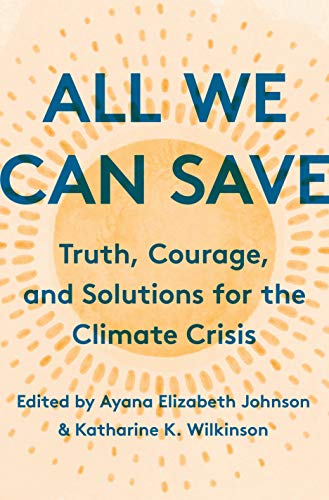
‘All We Can Save’ illuminates the expertise and insights of dozens of diverse women leading on climate —scientists, journalists, farmers, lawyers, teachers, activists, innovators, wonks, and designers, across generations, geographies, and race—and aims to advance a more representative, nuanced and solution-oriented public conversation on the climate crisis.
2. How Bad Are Bananas?: The carbon footprint of everything
Mike Berners-LeePaperback: 304 pages
ISBN-13: 978-1788163811
Publisher: Profile Books (September 3, 2020)
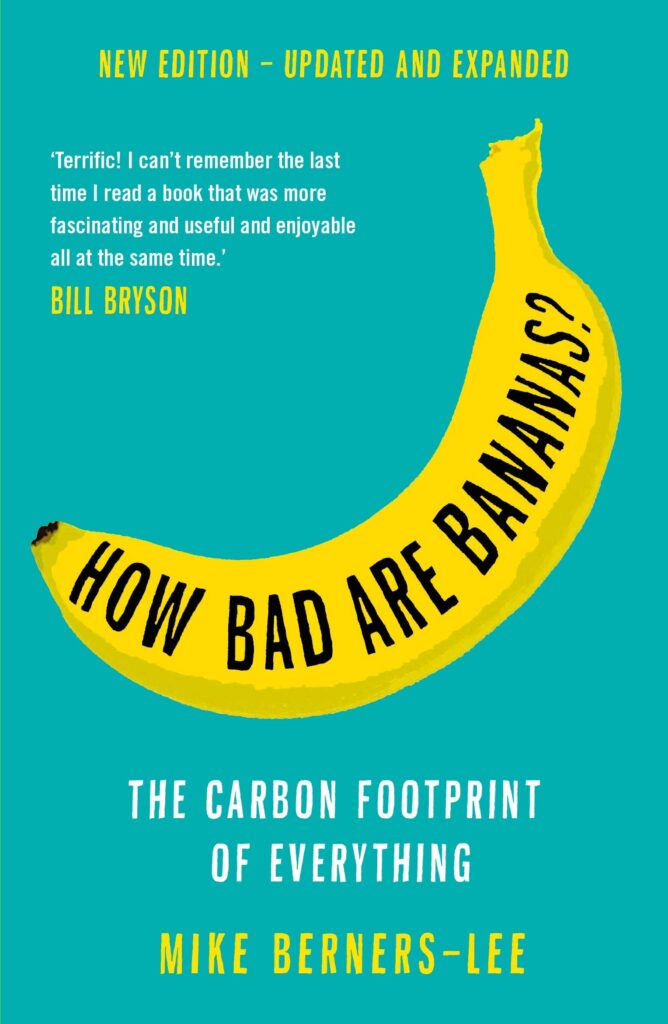
In his revised ‘How Bad Are Bananas?’, Mike Berners-Lee updates all the figures (from data centres to hosting a World Cup) and introduces many areas that have become a regular part of modern life – Twitter, the Cloud, Bitcoin, electric bikes and cars, even space tourism. Berners-Lee gives us the figures to manage and reduce our own carbon footprint, as well as to lobby our companies, businesses and government.
3. A Good War: Mobilizing Canada for the Climate Emergency
Seth Klein
Paperback: 464 pages
ISBN-13: 978-1770415454
Publisher: ECW Press (September 1, 2020)
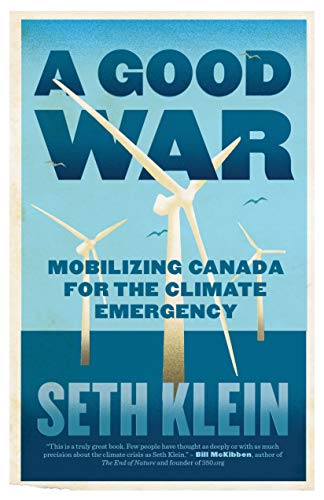
One of Canada’s top policy analysts provides the first full-scale blueprint for meeting our climate change commitments. It shows that radical climate crisis transformation can bring jobs and prosperity as we retool how we live and work. Though the book is targeted specifically to Canada and Canadians, yet it provides a model that other countries could follow.
4. We Are the Weather: Saving the Planet Begins at Breakfast
Jonathan Safran Foer
Paperback: 288 pages
ISBN-13: 978-1250757975
Publisher: Picador (August 4, 2020)
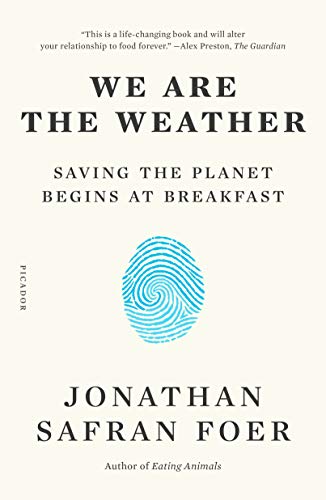
In ‘We Are the Weather’, Jonathan Safran Foer explores the central global dilemma of our time in a surprising, deeply personal, and urgent new way. Some people reject the fact, overwhelmingly supported by scientists, that our planet is warming because of human activity. But do those of us who accept the reality of human-caused climate change truly believe it? If we did, surely we would be roused to act on what we know.
5. Innovation for Sustainability: Small Farmers Facing New Challenges in the Evolving Food Systems
Gianluca Brunori, Stefano Grando (Eds.)
Hardcover: 256 pages
ISBN-13: 978-1839821578
Publisher: Emerald Publishing Limited (July 29, 2020)

Small farms represent important components of food systems and rural areas, as sources of occupation and livelihood, factors of socio-economic diversity, cradles of grass-roots innovation and experimentation. The book provides an in-depth exploration of the determinants, dynamics and outcomes of rural and agricultural change processes, with a special focus on the role of small and family farming.
6. Responsible Business in a Changing World: New Management Approaches for Sustainable Development
Edited by Díaz Díaz, B., Capaldi, N., Idowu, S.O., Schmidpeter, R. (Eds.)
Hardcover: 392 pages
ISBN: 978-3-030-36969-9
Publisher: Springer (May 11, 2020)
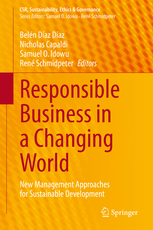
This book explores the current state of Corporate Social Responsibility (CSR) from an international perspective, the goal being to share ideas and visions for a sustainable future and to provide useful guidelines for academics, practitioners and policymakers in the context of the 2030 Agenda for Sustainable Development. This contributed volume presents a wealth of case studies.
7. Waste Management in the Palm Oil Industry: Plantation and Milling Processes
Phaik Eong Poh, Ta Yeong Wu, Weng Hoong Lam, Wai Ching Poon
Hardcover: 81 pages
ISBN-13: 978-3030395490
Publisher: Springer; 1st ed. 2020 Edition (January 31, 2020)
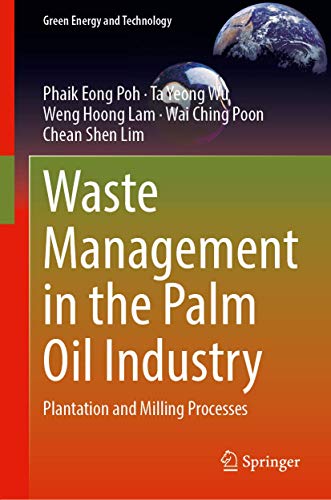
This book presents the technological developments that are currently being researched or implemented in the management of palm oil industrial waste. Focusing on the wastes generated solely from plantation and milling activities, it then evaluates the sustainability of current practices and elaborates on technological developments in the two sectors, before critically assessing options to treat wastes generated from the plantation and milling process.
8. Humans in the Global Ecosystem: An Introduction to Sustainable Development
Pierre Ibisch
Paperback: 416 pages
ISBN-13: 978-0857845405
Publisher: Green Books (April 1, 2020)

The term sustainability is on everyone’s lips, but nevertheless we struggle to transpose the idea into our economic and social structures. This book aims to provide an overview of the relevant discourses, but also – and above all – a stimulus for fresh thinking, with new suggestions for defence and further development of the concept of sustainable development. It addresses the position of humans in the global (eco)system, and it interprets and applies sustainability as a multi-and inter-disciplinary concept.
9. Rethinking Business Responsibility in a Global Context: Challenges to Corporate Social Responsibility, Sustainability and Ethics
Schlegelmilch, Bodo, Szocs, Ilona (Eds.)
Hardcover: 471 pages
ISBN: 978-3-030-34260-9
Publisher: Springer; 1st ed. 2020 Edition (February 19, 2020)
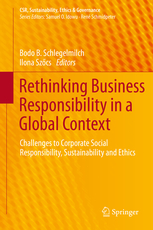
This book examines topical issues in global corporate social responsibility (CSR) from both scholarly and practical perspectives. It offers a variety of viewpoints and cases from countries around the globe and combines them with current academic knowledge. Intended for students, academics, and managers wishing to keep abreast of the challenges and opportunities for corporations operating in our ever-more-complex globalized world, this book provides fresh insights into responsible business conduct.
10. The New Environmental Economics: Sustainability and Justice
Eloi Laurent
Paperback: 230 pages
ISBN-13: 978-1509533817
Publisher: Polity; 1st Edition (January 13, 2020)

The book provides a framework that prioritises human well-being within the limits of the biosphere, and to rethink economic analysis and policy in the light of not just efficiency but equity. Leading economist Éloi Laurent ties together sustainability and justice issues in topics ranging from biodiversity and ecosystems, energy and climate change, environmental health and environmental justice, to new indicators of well-being and sustainability beyond GDP and growth.
